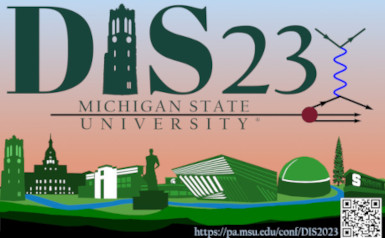Speaker
Description
The factorization theorem plays an important role in the analysis of high energy quantum chromodynamic (QCD) processes, separating the nonperturbative hadronic interaction into the universal parton distribution functions (PDFs) and fragmentation functions (FFs) and the process-dependent interactions into short distance perturbative calculations, with any interference power suppressed. With a virtual photon exchange, lepton-hadron deep inelastic scattering (DIS) provides an electromagnetic hard probe for the partonic structure of colliding hadron and has played an important role in the development of QCD factorization. However, the collision induced QED radiation can change the momentum of the exchanged but unobserved virtual photon, making the photon-hadron frame, where the factorization formalism for DIS and semi-inclusive DIS (SIDIS) was derived, ill defined. An new analogous factorization approach has been introduced to separate the leading power process-independent QED radiative contributions to the single photon exchange by introducing lepton distribution functions (LDFs) and lepton fragmentation functions (LFFs), while process-dependent effects are perturbatively calculated with large logarithms removed [J. High Energ. Phys. 2021, 157 (2021)]. These LDFs and LFFs are considered global, as they appear in many different interactions, such as $e^+ e^-$, DIS and SIDIS, so data from experiments can be used to fit and describe these functions across a wide range of lepton scattering. In this talk, I will apply this new factorization approach to lepton-hadron SIDIS to study the cross-section in two different kinematic regions: (1) the scattered lepton and observed hadron are not near back-to-back, and (2) they close to back-to-back, where collinear QCD factorization works for (1) and TMD QCD factorization for (2) while collinear QED factorization for both, in a newly introduced hybrid factorization approach. As part of this work, I derived the NLO perturbative coefficients for SIDIS in both regions, and investigate the matching between these two regions.
| Submitted on behalf of a Collaboration? | No |
|---|




